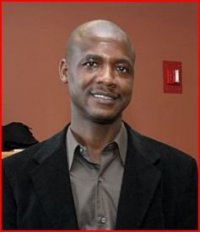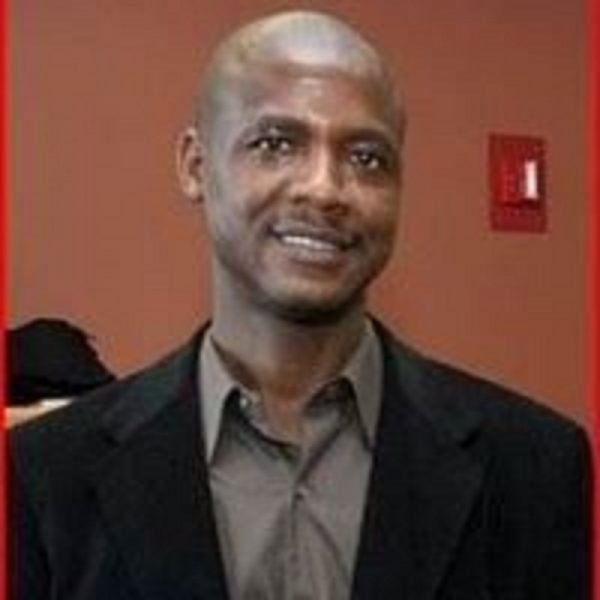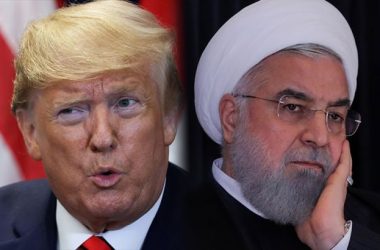
“Speak a language is to take on a world, a culture”- Philosopher Franz Fanon Part 1
Inspired by the work of Lewis Gordon and other existential philosophers, this is the basic premise: our experience as Africans matters. This philosophy focuses primarily on African migrants and economic refugees in the Diaspora, which resulted in the extinction of our native languages and the emergence of the English language’s dominance as our lingua-franca in the Diaspora, especially the stereotypes that both African parents and children do not want to speak their mother tongues.
This contradicts the lived experiences of migrants in the Diaspora and the critical issue of African languages and identity in the African community, especially in our Gambian Diaspora where I belonged, is mind-boggling.
This change in language is the result of the disturbing behavior of our parents, brothers, and sisters in our Diaspora communities. It is very disturbing to witness grown-up and educated people or intellectual elites at social gatherings displaying the self-imposed hatred of their own native languages. Even if Gambia was colonized by the British who, of course, bequeathed the use of English language to us, should we still struggle to speak and understand our mother tongues?
I get upset and ashamed when I see people who have a strong ethnic culture throw it away in favor of a foreign culture, which means accepting bland Americanization.
I sometimes hear someone in the Diaspora community tell their own people to get over or forget their African heritage, culture, tradition, and ethnicity and instead to just integrate into westernization to fit, or be part of, the system. Really? How would they feel if their ancestry had been stolen from them, I wonder? To have one’s language, customs, and culture stolen is a terrible shame and a disgrace that needs to stop starting here and now!
Research has shown that language is important in the identity of a people because it gives them a voice and sustains their culture and tradition. But today this appears not to be true because of an inferiority complex.
Diaspora parents are fond of communicating with their children in English, but when discussing among themselves, they do so in their local dialects, thus unwittingly shutting their children away from learning their local languages. It has also become popular to see parents forcing themselves to speak English to their children at home or employing semi-illiterate nannies (baby-sitters) from another culture, for example, Spanish or Filipinos, to speak English to their children and care for them.
The phenomenon of copying everything foreign has been woven deeply into the fabric of our great nation. According to Irina Bukova, UNESCO Director General, the use of our mother language furthers our integration and strengthens our national identity.
As a frequent follower of Diaspora activities, especially social, political, and religious activities in our society and communities, I have seen the Gambian people congregate for social and religious activities to socialize with our loved ones and to praise the Lord in our respective religions.
Most Gambians, especially the educated elites and millennials, have not achieved fluency when they speak their mother tongue. Instead, they prefer communicating in English with their fellow Gambians and not speaking in their mother tongue. This preference by the Gambians is a major cause of children’s inability to express themselves in their local languages.
I once witnessed a particularly grotesque social scene. Some local fools went out of their way to address the crowd in English at a social gathering of mainly Gambian speakers. The crowd did not include a single white man or a non-Gambian. The Gambians took pride in speaking English or another foreign language. Apart from the few Gambians who understand their mother tongue slightly, none of them spoke their own dialect or spook English fluently—what a cultural dilemma!
The comical thing is that almost all the fools who went on and on in English broke the Queen’s language beyond repair in their misguided belief that speaking English is a mark of intelligence. Our societal and cultural values are gradually fading away due to civilization and making the mother tongue an essential aspect of our culture. Education is complete when morals, norms, customs, and values are sustained, especially by immigrants.
After a wedding party, a grandmother expressed her concern that children who went to institutions of higher learning returned to Gambia speaking a language their parents did not understand. The poor granny did not understand 90% of what was said at this wedding party.
This phenomenon is widespread in Senegambia and prevalent among Gambians. There are many congregations and social activities in which priests and imams use English and Arabic as if God cannot comprehend Creole, Serre Jola, Mandinka, Halpulaar, or Wolof.
What most people don’t realize is that the behavior of our brothers and sisters who communicate in English to their own people is fundamentally ungodly. Gambian children in the Diaspora do not understand their own native languages.
Parents are fond of communicating with their children in English, but when discussing among themselves, they do so in their local dialects, thus unwittingly shutting their children away from learning their local languages. It has also become popular to see illiterate parents forcing themselves to speak English to their kids at home.
Even grandparents, who should help pass on culture and retain local dialects, also speak English to these kids. Unfortunately, as much as these kids want to appear fluent in the English language, their efforts are not much to cheer about. It is almost becoming a fad to see young people proudly telling their friends that they don’t speak or understand their native language.
God made the African people and their languages. The Lord wants to look upon his people from the high heavens and derive joy from the beauty of their diversity.
To sound clever, some misguided folks distort God’s design by trying to convert African diversity into a drab English monolith.
In the process, God is deprived of the beauty of the African languages that He created. His ears are pelted with broken English words by confused and so-called intellectual elites. Unfortunately, these days, people in some self-acclaimed highbrow schools and elitist environments are making fun of the few who speak their native dialects.
This is not to say that in linguistically diverse congregations our brothers and sisters must not use English as the lingua franca. The real question is, why address people in a community in English when everyone speaks another language?
This question is certainly not confined to our intellectual elites or political leaders who speak English. The attitude that English is a mark of intelligence permeates all branches of African life. Even in ghettos, there are drunkards who try to sound better by speaking broken English.
What our brothers and sisters don’t realize is that the real owners of the English language view them as a joke. Imagine how you would feel seeing a dog who brags because it is wearing your expensive jacket.
Today, it is very disturbing to witness grown-up Africans at ceremonies and in other social gatherings displaying a self-imposed hatred of their own languages. What such African people don’t realize is that, by behaving the way they do, they are teaching children that English is superior to other native languages. When they grow up, the children might think that African tongues are the languages of monkeys.
African people who associate English with intelligence must be reminded that, in London, there are white hobos who sleep under bridges. Those hobos speak their native English, but they remain uneducated and stupid.
Indeed, a national dialogue is more than urgent to save the lost African souls among us: our brothers and sisters who think English is heavenly and the African idiots who force their unaccustomed tongues to pronounce difficult English words at social gatherings in our communities and societies. Such people are enemies of African identity, and their minds need to be decolonized.
The author is founder and former managing editor of The Independent, the Gambia’s only private newspaper before it was banned by the government in 2005. He was a Reagan-Fascell Democracy Fellow at the National Endowment for Democracy, a 2007 Nieman fellow and is the author of Delayed Democracy: How Press Freedom Collapsed in Gambia published in 2013.






If you wanna play poker, you have to buy some chips. If you wanna trade you need to understand what your trading; Understanding currency and the language it trades under, is essential. Communication. Communication Comunication. Eeeeee Bahhhh Gummmm.
Excellent article, years ago they use to kidnap my ancestors bring them across the Atlantic ocean, some on a ship named
“Jesus”, coincidental? too all over the world to work on plantations, when my people were on the plantation they would communicate in their mother tongues, slave masters did not like that so he would beat my ancestor until they stopped and if the slave did not stop communicating in their language then the slave masters would physically cut out the tongue of the slave, can anyone really imagine what sort of pain was felt? (One day I will tell you what the slave masters would do to pregnant female slaves) but the slaves were so organised they switched to using the drums, so when master was going away drums would start sending signals to burn down the plantation that night, that’s why drums are so prominent in black music, especially reggae music, how things have changed, mother
Tongues disappearing, which is one of the pillars of any nation, were even paying our slavemaster now too come and work on his plantation!
(most off us for free in real monetary terms.)
Grim Reaper,I am interested to know your narratives on the evils and cruelty of slavery,how they were denied their vernacular and the mode of communication using the drum beats.I will be coming continuing with the article.
I think the movie;” 12 years a slave”, was indeed a terrible insight into the depravity of slavery.Strange how the American’s always want to give such a powerful story a “happy ending” as though it is a conscience clearing exercise. It is also strange how Africans pay to work in the lands of the former slave masters and cross oceans and deserts to leave Africa for an uncertain future. Today it is the trade in visa’s and false documents not those in chains. “The dangerous Journey” continues. Today, if a British ship offered free passage and a visa>>the boat would be filled in minutes. The trade is now in visa’s not chains. I have just spoken to an African lady who has been in the UK for 19 years under a false name and identity. She is looking forward to her 20th year, when under the length of stay rules she can apply for indefinite right to remain. 20 years denied of her identity and freedom to be herself. Only an African can explain why ?After 50 years of independence what drives you out of Africa and away from your families ?
There may, undoubtedly, be many who may shun our native languages because they feel inadequate in their host/adopted countries, unless they speak the language, but I think the issue of native language in the diaspora is a bit more complicated than inferiority complex and wanting to abandon our languages. There are many other factors which create such a situation amongst, not only Gambians, but many immigrant families in Europe and USA.
Mike Scales has exposed just one, when he cited the case of the African lady who lived in the UK for 19 years under an assumed identity. There are many who do not even have the privileges of assumed identities but have to eke out their livelihoods, under the radar of strict scrutiny everywhere. Imagine the challenges that these people face when they start families in their host countries! Unless they have support from friends and family (which is very rare), their interactions with their children is very rare, as they have to rely on nurseries to be able to work and have a roof our their heads, put food on the table and support families back home.
The children who are put in nurseries, on the other hand, hardly come into contact with the languages of their parents, as they grow up and naturally develop the culture and languages of their places of birth. Overtime, it becomes difficult, even if the parents desire so, to communicate with the children in their own languages, as the children simply don’t know the language. So, whilst parents are forced to speak to their children in a “foreign” language, they find it awkward to speak to each other in the same foreign language, and thus, the emergence of that language gap between parents and children. It’s unfortunate, but it’s an inescapable reality for many who may have very little, if any options, to address it.
I don’t think we must fuss about it too much because the situation can be resolved very easily, if we are able to take our children on holidays to Gambia. Children are fast learners and they will learn the language in no time. I’m talking from personal experience here.
To sound a note of caution, we must avoid forcing the language on our children (as it may be counterproductive) or worst still, attempt to “import” and “create” our own “little Gambia” within our host/adopted countries. It will be a tragic mistake. There are communities, of mostly Asian backgrounds, who have done this in the UK and they are suffering the consequences.
After all, our fore fathers advised against it when they said, “When one visits a village where the natives dance on one leg, one must follow suit and dance on one leg.” (Mandinka proverb)
The Englishman puts it even more briefly, when he said, “When in Rome, do as the Romans.” Let’s find a balance between living and raising children in the diaspora, with all its attendant consequences, and assimilating our children in our cultures, without the risk of conflict within the families and within our Gambian diaspora communities.
Exemplary explanations From Bourne and Bax. I can touch your feelings from experience. I think the language issue may be given the same prominence as “saving the planet”I have spoken to many black Americans whose journey to the Roots festival is an emotional return to their history. Kunta Kinteh lives on in the hearts and minds of so many grown up children searching for identity and connection and explanation.